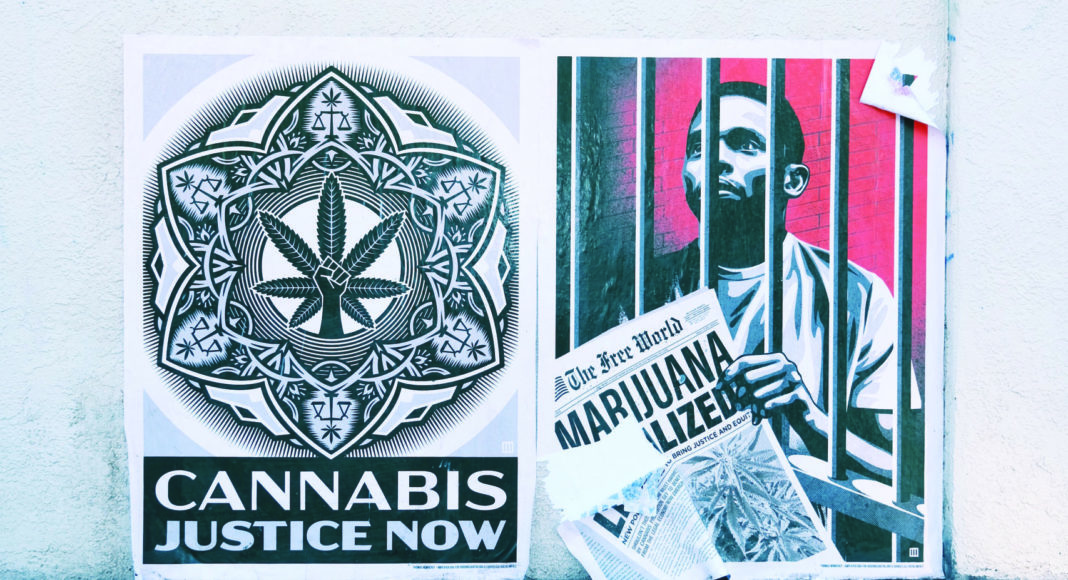Last week the governors of six states—Illinois, Colorado, New Jersey, New York, Louisiana and Maryland—sent a letter to President Biden asking him to reschedule cannabis to Schedule III by the end of the year, meaning there would be fewer restrictions on pot and its medical benefits would be recognized.
As is the case with so many proposed reform measures, the letter sounds like an endorsement of outright legalization, but it isn’t.
Every time a new cannabis reform measure is proposed, the ludicrousness of the continued illegality of weed is brought into sharper relief. A bill that would allow banks to do business with pot companies in legal states without fear of liability? Great! But why not just legalize cannabis? A bill to allow health researchers to work directly with the plant without fear of losing federal funding? Great! But why not just legalize cannabis? A bill to allow legal pot merchants to write off expenses on their federal tax returns? Great! But why not …
And on and on and on.
In September, we learned that the U.S. Department of Health and Human Services had made a recommendation that cannabis be re-categorized. As I noted at the time, while such a move would ostensibly be a good thing, it wouldn’t even decriminalize pot, much less legalize it. Most of the problems associated with the bifurcation between federal laws and state laws would remain, even as states continue to legalize and the population overwhelmingly and increasingly favors legalization.
The six governors requesting the re-scheduling cite a poll indicating that nearly nine in 10 Americans favor legalization for recreational or medical use, and states that “[a]s governors, we might disagree about whether recreational cannabis legalization or even cannabis use is net positive, but we agree that the cannabis industry is here to stay, [that] the states have created strong regulations, and [that] supporting the state-regulated marketplace is essential for the safety of the American people.”
Great! But why not just legalize cannabis? The governors don’t even really address the question. The letter is essentially an argument in favor of legalization but in essence, it asks that weed be kept illegal, even if somewhat less so, even if the governors “disagree” with each other over whether to legalize. As such, it amounts to a perfect encapsulation of how cannabis reform is going at the federal level: It’s a self-contradicting mess.
Things got even messier later in the week when HHS released the actual proposal and supporting documents—it previously released only a heavily redacted version that didn’t even include the request for rescheduling, though that bit of news was leaked to the press. It’s 250 pages and goes on and on about all the benefits of cannabis, and all the drawbacks to maintaining its Schedule 1 status.
Every one of those benefits, and all of the ones cited by the governors, and many more, would be far more easily achieved by simply legalizing.
Toward that end, sort of, a bipartisan group of lawmakers has introduced an update of a bill—the Strengthening the Tenth Amendment Through Entrusting States Act (STATES)—that failed in 2018 and again the next year. This one wouldn’t quite legalize weed, but it would recognize legal pot in states that have legalized it, would enable interstate commerce—including allowing regulated transport through non-legal states—and would order the Internal Revenue Service to allow legal cannabis companies to write off expenses. It would also retain the illegality nationwide of selling pot to anyone under 21, except for medical reasons. And it would create a framework for taxing and regulating pot. Dubbed “STATES 2.0,” it’s the more conservative alternative to the Marijuana Opportunity Reinvestment and Expungement Act, though both bills have signatories from both parties.
Neither has much chance of passage in the near term, however, thanks mainly to Republican opposition led by Senate Minority Leader Mitch McConnell, and so we’re left for now with all these disconnected attempts at reform aimed at solving a myriad of problems that would all easily be solved with one relatively simple and overwhelmingly popular action: legalization.













